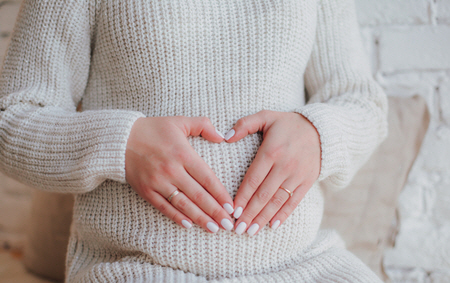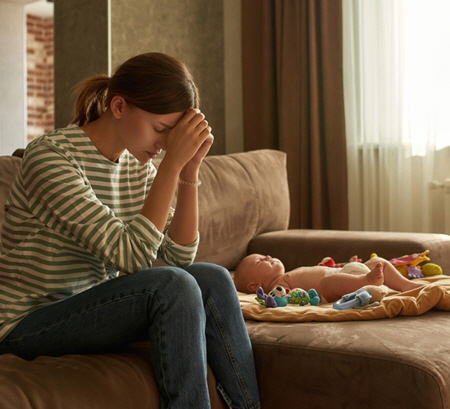 You planned this for so long.
You planned this for so long.
The nursery looks Pinterest-perfect; the baby gear has been purchased and assembled. You feel ready for this baby!
All that planning makes you feel confident. You were born to be a mother. That dream of the moment when you first hold their tiny little body and fall instantly, madly in love, is about to come true.
But that wasn’t your experience.
There was no love at first sight, and you failed to feel the immediate connection and bond expressed by so many people. It’s a struggle to get through the day-to-day tasks of caring for your newborn, and you dread the nights while feeling sad, irritable, and exhausted. You feel angry with your partner and resentful of the sleep they are getting while you are up at night feeding the baby.
Those negative thoughts and feelings make you wonder if you should have ever become a parent in the first place. And those thoughts are incredibly guilt-inducing. But you can’t talk to your friends about this because you are sure none of them have felt like this. You feel so isolated.
You have heard of the “Baby Blues,” but could it be more than that?
 When it’s more than the “Baby Blues”…
When it’s more than the “Baby Blues”…
The problems discussed most often regarding mental health issues after the birth of a child are perinatal depression and perinatal anxiety. These perinatal issues can occur during pregnancy and/or after giving birth.
A mother with Perinatal Depression might experience feelings of anger, sadness, irritability, guilt, lack of interest in the baby, changes in eating and sleeping habits, trouble concentrating, thoughts of hopelessness, and sometimes even thoughts of harming the baby or themselves.
Mothers with perinatal anxiety often experience extreme worries and fears over the health and safety of the baby. Some people have panic attacks and might feel shortness of breath, chest pain, dizziness, a feeling of losing control, and numbness and tingling.
 Perinatal obsessive-compulsive disorder (OCD) is another likely explanation.
Perinatal obsessive-compulsive disorder (OCD) is another likely explanation.
Postpartum or Perinatal OCD (PPOCD) receives less attention than perinatal depression and anxiety, and it is the most misunderstood and misdiagnosed perinatal disorder. Up to 5% of mothers experience OCD during pregnancy or postpartum.
Someone with PPOCD can have repetitive, upsetting, and unwanted thoughts or mental images related to the baby (obsessions). Sometimes, they need to do certain things repeatedly (compulsions) to reduce the anxiety caused by those thoughts.
Some compulsions may include needing to clean constantly, checking things frequently, and counting or reordering items. These thoughts are very upsetting and may not be something previously experienced by the woman.
A mother may also experience a sense of horror or shame about the thoughts; they may fear being left alone with their infant or become overprotective of the infant. People experiencing PPOCD know their thoughts are bizarre and are unlikely to ever act on them.
 This sounds like what I’m experiencing. Will it ever go away?
This sounds like what I’m experiencing. Will it ever go away?
Yes. What you are going through is something that so many other mothers have experienced. With informed care, you can prevent a worsening of these symptoms and fully recover. You deserve to have the motherhood experience you wanted. With my knowledge from clinical and lived experiences, I can help you get there!
I will provide a safe space where you feel supported to express your feelings and thoughts without judgment. I will collaborate with you to develop an individualized plan that includes learning new coping skills, identifying available support people in your life, and connecting you to resources in your community.
Let’s work together to get you feeling comfortable in your new role as a mom and thriving in it. I can help you embrace your new role with calm, competence, and renewed confidence.
You are not alone. Contact me right now for a complimentary 20-minute consultation. It’s my privilege and honor to help you.

